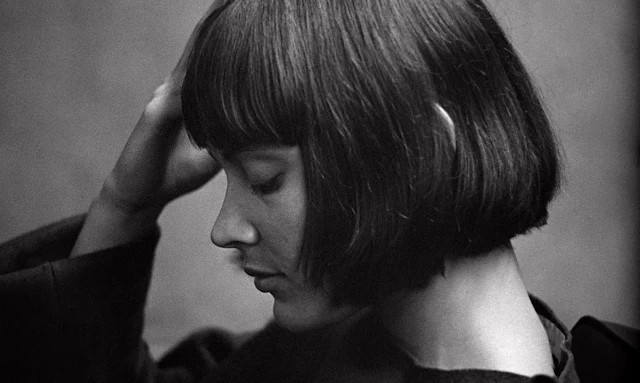 |
| Samuel Kircher and Léa Drucker in Last Summer |
Cast: Léa Drucker, Samuel Kircher, Oliver Rabourdin, Clotilde Courau, Serena Hu, Angela Chen, Romain Maricau, Romane Violeau, Marie Lucas, Neilia Da Costa, Lila-Rose Gilberti, Jean-Christophe Pilloix. Screenplay: Catherine Breillat, Pascal Bonitzer, based on a screenplay by Marie-Louis Käehne and May el-Toukhy. Cinematography: Jeanne Lapoirie. Production design: Sébastien Danos. Film editing: François Quiqueré.
When we first meet Anne (Léa Drucker), she's using her considerable skills as a lawyer to help a young woman prosecute her rapist, and we learn that she has devoted much of her career to helping women in abusive situations. So why does Anne, all of a sudden, start having sex with her 17-year-old stepson (Samuel Kircher)? Catherine Breillat's Last Summer never quite comes to terms with Anne's hypocrisy, which is compounded by the lies she tells to her husband after his son tells him of the affair. Still, the film works, thanks to skillful performances by Drucker and Oliver Rabourdin as Anne's husband, Pierre, a rather dull businessman who doesn't have the emotional wherewithal to cope with the revelation. Breillat plays down the sensational aspects of the plot in various ways: in the sex scenes, the focus is on faces rather than bodies, and in the confrontation of husband and wife, the violence is emotional rather than physical. Even the revelation that Pierre has been told of the affair is postponed until he and Anne have had dinner with their two young adopted daughters and sent them to bed, although you can sense the tension building. Last Summer is a fine example of directorial restraint, up to the ending. The only question is whether restraint is appropriate to the subject matter.






.png)


